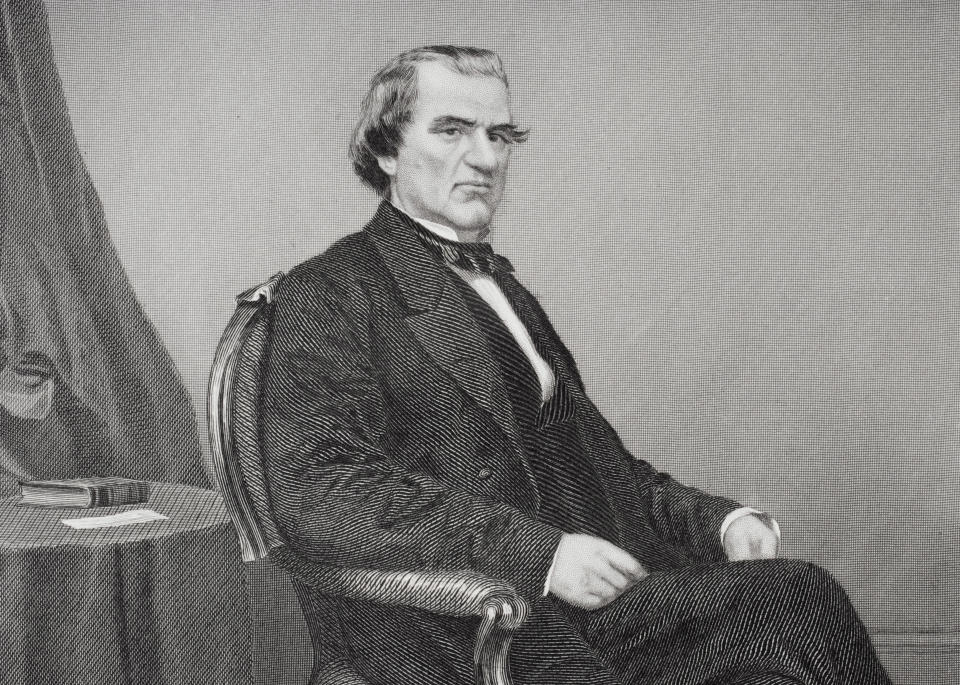2020 Vision Wednesday: Trump says impeachment will be 'a positive for me in the election.' Will it?
Welcome to 2020 Vision, the Yahoo News column covering the presidential race with one smart, fast takeaway every weekday and a deeper roundup every weekend. Reminder: There are 131 days until the Iowa caucuses and 405 days until the 2020 election.
There are many things that can derail a political career. Being found in bed with “a dead girl or a live boy” (in the immortal phrasing of Louisiana Gov. Edwin Edwards) is one. Impeachment is usually considered another.
Yet there was President Trump on Tuesday, telling reporters at the United Nations that impeachment will be “a positive for me in the election.”

He’s not the only one expressing this view. “The misguided Democrat impeachment strategy … will only serve to embolden and energize President Trump’s supporters and create a landslide victory for the President,” Trump campaign manager Brad Parscale said in a statement. GOP Rep. Tom Emmer of Minnesota agreed, adding that “backing impeachment will cost Democrats their [House] majority in 2020.” And even conservative pundit Ross Douthat, who is no Trump fan, presented New York Times readers Tuesday with “four reasons the president might welcome articles of impeachment.”
Do they have a point? Or is this just, to coin a phrase, whistleblowing past the graveyard?

Trump’s logic is pretty straightforward. Impeachment is, and always has been, unpopular. It was unpopular in early 1973, when Gallup polling showed that only 19 percent of Americans supported removing President Richard Nixon from office. It was unpopular in January 1999, when Gallup polling showed that only 32 percent of Americans supported removing President Bill Clinton. And it’s been unpopular in every poll taken since the start of 2017, with an average of 38.5 percent of the public favoring impeachment and 55.7 percent opposing it. Independents are particularly unenthusiastic: 28 percent for vs. 62 percent against, according to a recent Marist poll.
The theory, then, is that the American people will rise up and reject the Democratic push for impeachment — or at least Republicans and independents will, and the backlash will spur turnout for Trump and the GOP in 2020. Fans of this theory usually cite the 1998 midterms. Usually, the party that doesn’t control the presidency gains ground in the midterms. But in November 1998, with Clinton in the White House, it was Democrats who netted five House seats, and exit polls showed that voters were wary of the GOP’s impeachment effort.
Yet there are a few reasons to be skeptical about the “same thing” happening again in 2020. The first is that impeachment wasn’t, in fact, an unalloyed victory for Clinton. Democrats may have flipped a few seats in 1998, but they didn’t flip the House. Two years later, Vice President Al Gore distanced himself from Clinton. Republican George W. Bush ran on restoring decency to the White House. Both sides saw impeachment as a negative.

The second reason for skepticism is that sentiment can shift. The existing Trump impeachment polling mostly references Russia and the Mueller investigation; the Ukraine scandal is more clear-cut and digestible. How will the public react once the whistleblower report is released? How will other developments play? Impeaching Nixon may have been unpopular in early 1973, but by the summer of 1974, when Nixon resigned, support had climbed to the high 50s, driven largely by independents. The analogy is imperfect — partisanship is stronger now, and Nixon had already been reelected — but it does show how dramatic new revelations can change the public’s mind.
Which brings us to the third reason to be skeptical that impeachment will benefit Trump next November: It’s entirely possible, even probable, that it won’t end up affecting the 2020 election very much at all.
Say impeachment doesn’t produce any dramatic new revelations. Say the Democratic House votes to impeach Trump and the Republican Senate votes to acquit — a likely outcome given that it’s nearly impossible to imagine 20 Republican senators agreeing to remove Trump from office. The whole process will probably be over in early 2020. (Andrew Johnson’s impeachment proceedings took less than three months; Clinton’s took two.)

Trump will still be in office. At first, he will claim vindication. Some Democrats will be deflated; most, however, will have expected this result. The news cycle will move with its usual amnesiac velocity. The same patterns that have persisted throughout Trump’s presidency — his 91 percent approval rating among Republicans; his 38 percent approval rating among independents; his 5 percent approval rating among Democrats — will reassert themselves.
House Democrats in districts won by Trump might feel squeezed; Senate Republicans in states won by Hillary Clinton might feel the same. But come November — eight, nine, 10 months later — voters won’t be delivering a verdict on impeachment. They’ll be delivering a verdict on Trump. And unless impeachment somehow preempts that verdict, it’s unlikely, at this point, that anything will change it.
_____
Download the Yahoo News app to customize your experience.
Read more from Yahoo News:
Kavanaugh book authors: 2020 Democrats had a 'rush to judgment' on impeachment after NYT op-ed
Russia carried out a 'stunning' breach of FBI communications system
Court revives suit alleging Fox News inflicted 'emotional torture' on Seth Rich family
After hours of questioning Lewandowski, Democrats finally land punches
PHOTOS: Scientists race to read Austria's melting climate archive




